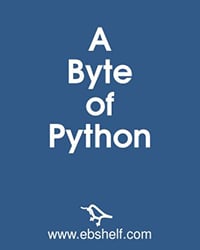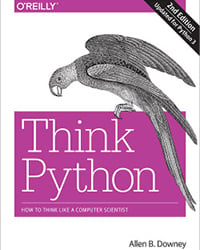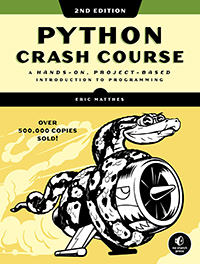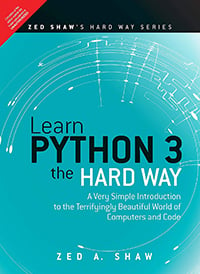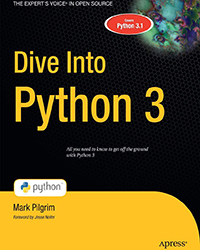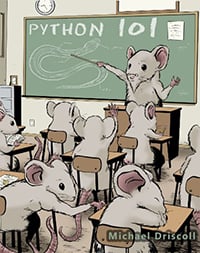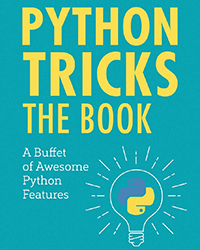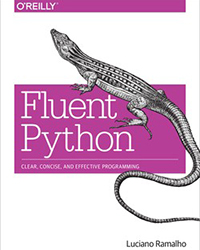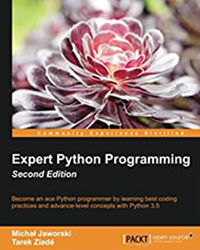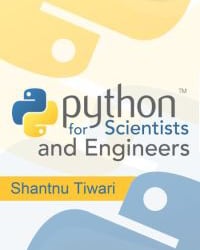Top Python Books – Get the hang of Python
Want to learn Python? I bet the first thing you did was to Google the best books you can learn python from. Well, that’s probably what brought you here.
Turns out, Google might have overwhelmed you with loads of books to choose from. But we are here to save you the hassle.
From tons of options at hand, we have chosen the best Python books for different levels of learning. And these books are quite popular in the community and highly acclaimed by the experts.
Python Books for Beginners
Having difficulty in finding the right book to start your Python journey with?
Here are some best books at your disposal if you’re still a novice in the “programming circles”. These books are going to help you dive into the whole new world of Python.
1. A Byte of Python – by Swaroop C H
The author says, “If all you know about computers is how to save text files, then this is the book for you.”
Are you a complete newbie trying to make your way into the field of programming? If yes, then this book is gonna ease you into the new world of programming through python. It’s a free book featuring the most elementary and fundamental topics of python.
It includes everything from the “first steps”, involving variables and functions, to the concepts of Object-oriented programming.
Nothing less, nothing more!
A reader of the book, Nickson Kaigi wrote, “A Byte of Python” by @swaroopch is still the “Best newbie guide to python”. In the end, the book also guides you through the different projects you may take. It further advises you with the books you might wanna read to learn about python at an intermediate level.
2. Think Python, How to think like a computer scientist – by Allen B Downey
The publishers claim, “This hands-on guide takes you through the language a step at a time, beginning with basic programming concepts before moving on to functions, recursion, data structures, and object-oriented design.”
If you want to take a more serious approach to learn python, this book’s for you. It has everything you need to know about basic Python Programming. Moreover, it gives the reader an insight into how coders think about coding.
3. Python Crash Course: A Hands-On, Project-Based Introduction to Programming – by Eric Matthes
The author has done a pretty good job with this one. This book drives you through the core of Python programming. It teaches you how to “code” without including unnecessary theoretical information.
Learn python concepts in the first half of the book and get your hands on three amazing projects in the second half!
And it doesn’t end here! This book comes with cheat sheets reminding you of the syntax rules and concepts while you are working on projects.
4. Learn Python 3 the Hard Way – by Zed A. Shaw
Zed A. Shaw believes that “the hard way is easier!”.
The book tries to make an engagement with the reader. It will seem hard at first. That’s because you will start learning python by solving 52 exercises throughout the course of this book.
You get to learn from the vast variety of topics it covers under the fundamentals of python. And you get to make your first game and your very own website!
So by the end of the book, you can definitely call yourself a “Python Programmer”.
Python Books for Intermediate level
These are the books to choose from when you already have the basic knowledge of python programming or any other programming language as such.
1. Head First Python, 2nd edition – by Paul Barry
It’s different from other books.
This is what the publisher’s website has to say about the book, “Based on the latest research in cognitive science and learning theory, Head First Python uses a visually rich format to engage your mind, rather than a text-heavy approach that puts you to sleep.”
Why waste your time struggling with new concepts?
This multi-sensory learning experience is designed for the way your brain really works.” Unlike traditional books, this one has an eye-pleasing and engaging style.
All the pretty pictures and repetitive context makes it interesting and easier to remember what you read earlier.
Covers the basic concepts to begin with and slowly moves towards building a more advanced approach.
2. Dive Into Python 3 – by Mark Pilgrim
Already have programming experience in Python 2 but need to adapt to Python 3? This book is your hands-on guide.
As Python 2 is going obsolete, many companies are expecting their employees to get familiar with working in Python 3.
This book is for :
- Those who are a complete beginner to programming.
- Those who have basic programming experience in other languages.
- The returning professionals who need to get back to coding
The Python programmers switching from Python 2 to Python 3.
3. Python 101 – by Michael Driscoll
Python 101 starts off by going into detail about the fundamentals and then gradually builds up from there.
Divided into five parts, the book in its entirety covers a considerate amount of intermediate level materials alongside the beginner materials.
The different parts of the book separately incorporate the basic concepts, Python’s standard library, intermediate material, tutorials, and Python’s packages.
The author has to say the following about the book,
“It is not meant to be an exhaustive reference book. Instead, the object is to get you acquainted with the building blocks of Python so that you can actually write something useful yourself.”
4. Python Tricks: The Book – by Dan Bader
Dan Bader writes in his book,
“Python Tricks started out as a short series of code screenshots that I shared on Twitter for a week. To my surprise, they got rave responses and were shared and retweeted for days on end.”
This is how the book started, with simply a few tweets.
It’s a series of shortcode snippets that apparently “discovers the hidden gold” of python standard libraries.
This book will bring out the coolest aspects of python with short and easy examples. This book proves to be a perfect choice if you need to explore some cool python tricks and have fun at the same time.
Python Books to Become an Expert
Ace up your skills to the ultimate level with these books.
1. Fluent Python – by Luciano Ramalho
The publisher’s site says,
“Many experienced programmers try to bend Python to fit patterns they learned from other languages, and never discover Python features outside of their experience. With this book, those Python programmers will thoroughly learn how to become proficient in Python 3.”
Up your game with the ultimate book for advanced Python Programmers.
This book will take your skills to the next level by teaching you how to write effective, idiomatic code. It’ll make you leverage everything Python has to offer.
By the end of this book, you will learn the different ways in which you can make your code shorter and more readable.
2. Expert Python Programming – by Tarek Ziadé and Michal Jaworski
Do you have everything it takes to build an application but you want to develop better ones?
The software development practices constantly evolve and new approaches get adopted as per the requirements.
This book teaches several ways to apply best practices and new development techniques for your project. Hence, making you an even better developer!
O’Reilly says, “This is the perfect book for refining your Python skills through learning best practices and the latest development techniques. Packed with real-world examples and written by an expert, this is the authoritative tutorial.”
3. Python for Scientists and Engineers – by Fernando Pérez
This book showcases the abilities of Python in performing impactful scientific calculations. It exposes you to packages like NumPy, Matplotlib, SciPy etc.
This book also introduces you to new technologies like Machine Learning and Natural Language Processing.
The tests at the end of the book challenge you. It makes you recall the tools you used earlier in the book.
Summary
Learning python is easy and at the same time a never-ending process. The more you dig deeper, the more you come across the hidden aspects of the language. To really make an impact, you need to build a rigid foundation. A part of the recipe for this rigid foundation is marked by these books, the other part will be marked by you.

